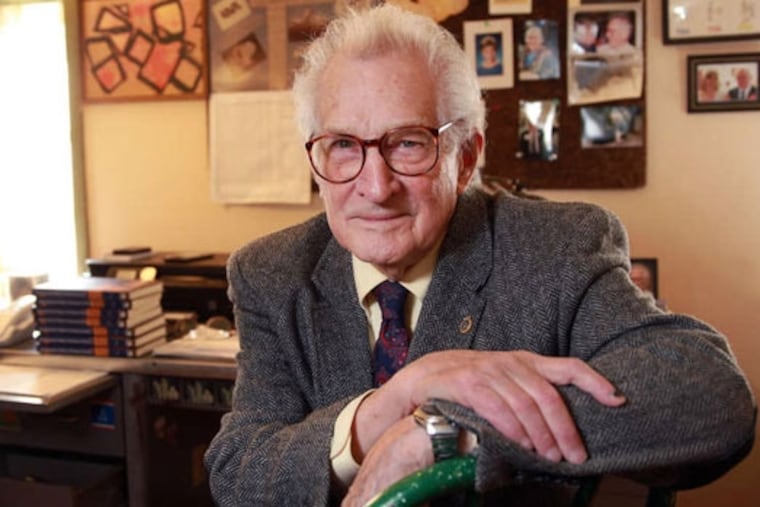Skip to contentJoanna Fong-Isariyawongse, The Conversation
Barry J. Jacobs and Julia L. Mayer, For The Inquirer
Joanna Fong-Isariyawongse, The Conversation
Joanna Fong-Isariyawongse, The Conversation
Barry J. Jacobs and Julia L. Mayer, For The Inquirer
John Lin and Jalpa Doshi, For The Inquirer
BriarRose Edwins and Hayley Goldner, For The Inquirer
Layla Bouzoubaa, The Conversation
Marcia Dunn, Associated Press
Adela Suliman and Kasha Patel, Washington Post
Marcia Dunn, Associated Press
Adela Suliman and Kasha Patel, Washington Post
Noah Robertson, Tara Copp, and Ellen Nakashima, Washington Post
David Ovalle and Cate Cadell, Washington Post
Geoff Mulvihill, Associated Press
Noah Robertson, Tara Copp, and Ellen Nakashima, Washington Post
David Ovalle and Cate Cadell, Washington Post
Geoff Mulvihill, Associated Press
{"ENV":"fARZWFwiZ0FQXWRPd1QNA39jYE9jInNcfHNwCg==","CONTENT_BASE_PROD":"Ul1aAl0+UUNoTWtNXCJaTWhNZ113MXwEaF1gTXQicE1/XWAFdCF8TXxNc153IXxNfwVoT3QiZ1lrc3RPdCJ0QmhNcE13Il5CfwV7XWMLZEJrc2ROdAxgB2hNfE1jMXtZfFp3XGAMfAg=","ARC_ACCESS_TOKEN_PROD":"UARdRHYubAFQBFYDXC50A3xgYE90InNcf3B8BHQMdAV8XXhAdBxgB3xjZEBjMnAAf2BoBnQcZAB8XXQEYBx7XnxjY19gMntcfF1WQHcMdAB8c2gEdyFvWH8FYE50DHwBf2NnWncicAZ8cHtbYDJzX39Nf1p0ImRPa2B4T3cyZ1l8Y11adDJ/XHxgd1t2MmdYa11wBnQycAZ8YHwEdAx0BHxweEB0VGwGa11ZXmBUb11oY2NadjFjXGhdYEBjMndca2NVWmAyeAd/c3NadiFwAQ==","GRAPHQL_KEY":"Uk13RmNVRUFUWXdZYwtwA3xNdAd2In9ffE1WBWMhYAB8XXhAdxx8AHxaaAZgMn9ZfGNzW2AMe1hrWnRNdwx0T2tdZE93HHwBfHB0T3YyYABrY1ZAdyFjXHxgYAdgVGxCfHB8QGA3CAg=","GATEWAY_URL":"VV1oQHQxQUB8WmtZYzEFA39gdAZ0MmNZf2NWT3cMcAV/YHhPYBxwBGtjeE90MnRCfwV8QHcMZ1l8YGRPdyF/WXxjeAZgMWAAfAVrWmMhf1loWmtfdjFjWQ==","GATEWAY_SLS_URL":"VH9oBWNVVgVTXV1FWhxaBH9zdE93MlJCa2NzX3chYEJ/TWBNdDJZWH9zcAd0InQGaE1kT3QiUgV8Y3QHYAxgTWtdY1tjDGRMf3B7XGMxb1h+cHddYzF8CA==","FEEDS_URL":"VHNVWFgxBEZQBXtedwxaBH9weAR0InRCf010QHQyZEJ/Y3QEdDF8BXxzcAJ3IXhMaE10T3QxYAR8XXdeYzFnWX8FeEB0DFIHf3N0BGMyYE18c3wCYzFvWXxNe1x3HHhPa11rXGMMXVh/YGgHYwxSQn52DAo=","RESIZER_KEY":"UGBnXV0iewdSYHddXTJaBGtze1t0MXxNf11/XncheExoY3xPdAt4TXxNcE50VGRNfF14BXQhe1h/TXdfYzF4TGhdcAR3HH9ZfF14AnQib1xoY3gHYzJzWHxNe1pjC3tZfHNwTQ==","GOOGLEANALYTICS_ID":"fnN7Wl0hYwVVBVVZdiFSA3xwYE93MmNZfE1gQGMyZE9/cHgGdjJjXnxjUk53ImxP","TWITTER_API_TOKEN":"fGAAAmMcd1p8XVVeWiFWA39aeE5jMnwFfAVoBmALY1x/Y1IGYzJ/XHxjaE13VHxNfFpgTXYyeAFoXXBPdDJvX2hdYE9gHHtZfF13XmMhYEx8YHhPdjJRWWtdVk90HGAFa2B0T2AxYExoWmRNdzFvWWtgZ192MWAEf2NdXncLeE9rYHhNYBxgAHxjZ1p2IW9eaF13W3cyZ1x/YGdddyFgAGhNZAJ3InNZaAV7W3Yxf158Y3teYAxZXGtad110MXhNaGB3XWMhZE1rYGNfdzFvX39we19jIW9efHBkT2MyXV9oTV1bdFRsBGhge1pgVHAEf2BjWncxeAZrWndadwtsTGtwd1p2ImRMaAV4AndUcAFoTXNcYAt4T35jaE93VGRMaAV0AndUeEx+c3QCYAt7Xmtde1x3IlIFaE14Cg==","GOOGLE_CLIENT_EMAIL":"a1pZA2AybwNSTXNOdy5wA3xzVkBjInNdf3BoT3QycAV8cHQHdzJzXX9zZE9jIndefF1WQHQcc1hoXWBAYFRvXX9zaAdgHFFdfHB3W3Qcf1l8TXRNdBxRX3xNd1p2ImxPfAV7XmMLb15rY39aYAtgTXxdZ150MWwFfGB7XmMxYE9oY3NbYwx4BmtjVVxgDHtdaGB/XHcLYAZ/WnhOYDJeBWtwdAo=","GOOGLE_PRIVATE_KEY":"Ul17RlwiWVlSWWNHWj58A38FeE93MmNdf2N8B3ccZ118Y1JNYwx4AH9zZE50DH9ZfGNwTXcifAR/YHhAdwxnWXxaYE13HGAGf3BgTXQcVk18WnwHdxxzXXxNa1p3InAGfGNrWncLbAd8Y1lfYDJwT39zYAV0DHgBa2NWT2Mid15rXXdcYDJnX39ja1p3IWAAf3N4T2Ayd1h8c1pNYDFjXXxaYE10ImNfaAV0T3RUfAR8Y1JAYwtvXmtwd113VHgBaE1kAnYye1xrXVVaYFRkB2hNa1p0C2RPa2NoTWMhfE1/c2dcd1RnXWhgZ1t2MWNffGN/XGBUeAZrXVVbdiJSBWhNf1xgMlIEa11jX3dUf15oY11edjF8QmtaaAZ3VHgGaAVrW2Mxe1hrc1VdYDF4TWtje1x2MXNea3N/XGAxY15rc11edwtwB35gZ1x0DFlfa118A3ccXgV+c2tfdyJSBX5zUgN3DHxPfAV0B3cieAZ/c3wHdjJ7XHxjYAZ3VGBNa114QHYifEJ8BXQHdzJ4B2hdaE1gHHddaF1WBmMidE1rXXxAYAtsBnxaaEBjIXNdfF1oQHccZAVrY2hAdCFsBmtjYE93HGdca2N/XmAMcAd8XWACdiJwBmtjcE1jMnhCa1poQHdUZAB/XXxPYyFgAWhgY1pgVGQHa2NZWmAyZ1x8c11bdCJSB2tge1p3Il1fa3B8QGALeEx8YGtcdzFvX2tzWV90IWdda3NjX2BUbAV8XXNcdjFvXGtjWVx0IXxCfmNdX3Qic15+cH9fdjF8Bmhde1x0VHtZaE1/XnQLb1hoBXtbdjFzXGtzVV90IXhPa1p3XXcLcARrYGtbdxxSAGtwY1t2InNdaF1zXXRUfE1+Y1ICYAt4AX5zUgN2IXhCaAV/XWMMXgVoYGtbYDF4AGtaa11jC2ABfnN4TmAydE98Y3BOdBxkBHxgYEB2ImQGf3BkBnQycAB8XVpNdzJwB3wFZEB3DHAAfHNwQGMMfE1/c1JPdiJ0BH9dZE52IWwEfHN0TncceEJ8c3RAYzJsTXxgaE5gDGAEfAVgB3QccEJrY2tbYAx/X2taZAd3DHBNfF1oBnQMeEx8WmtbdzJwQmtjVVxjIWAAaFp4T3dUZ1loXWtddzJ3XnwFZ112IWdda3NjW3cyUk9rcGdddjJZX3xwa1t0IWAHa2BkQHYxb11rc3tadiJ4B2tzY15gC2Nda2NzXXQheAF8cH9ddjFkAH5we1x3IWdYaGNVWmAxb15rYGdbYFR8BWtzWVt3MWxNa114AnYiZAFrXWNfdjFjXWhdd1x2MWdfaGB0AnRUcAVoTWNfdCJSQmhdWV50VHgHa1pnX3YiWVl+Y39dd1R/XX5je1xgMXNcaF1rX3Yxf1l8Y2hNdiJWAXwFYARjImQAfE1wTXYieAB8XVZPdAx8AH9dWgd3HH9ZfE1aBnQcf118XWdaYzJnXnxwZE52InBPf2N4T2MxY19/c1YGdDJ8AGtaaE10MnQGa2N0T2MybAV8XXBAdDJsTXxjd1t3VG9Ya2NdXHYycEJrc2tfdCJ4Bnxje190MWxNa3NnW3QhbAdrXXdddCFsAH9zYE93C2NYf3N0TmMLbEJrWmhPYyFsB2tjY1t3C3xCaAVjXmMhfAZrc2taYwtnWHxjcEBjIWxNfHBjX2MxY19rXXdfd1RsBGtaa15jC2xPa2N3XnchZ1loY1ldYBxwBn5zf11jIWAGaGBjW3YhZABrY2QCdAtsBmhNZ150Ml4Ea3NaAndUYAFrY3teYFRwTWgFY1x0IXBPfmBnW2BUb1l+Y1VcYwtkBmgFY150IWRCfmBjXXcyXk1oXX9edAxkBHxjaAZgHHNcf1pkQHYiZEJ8TVVaYAx0BHxNe1p0ImQFfF1kT2AMdAZ8XWAFYwtgBmtdVgR3MWAFa110T2AyeAZrXXdadCJzWH9aeE9gDHNYaF1ZWncMcAB8c3RPYzJgBWtda1x3HGddfGN/W3YhfAR8cHRPdzFgAGtde1t0DHRMa11dX3cicEJ8XVledAt4TWtjWVpgMWBPa3B/WnYyeEx/YGNbdxx4TGhjWV10VHhPa118TmBUZE9rcGtbYyFzXWhNa113DFIEfFp3XmMxe11rYH9adDJ0BmtjY1p3C2dYa3BjXmMxe11oXX9bYzFnX2tdWVpgVHxPfmNzXHYxcE9oY2tcdDF4BGhafANgC2QHa2N/XWAxZARoYGtdYzF8T2hdf1xgHF5PaE1ZX2AxZARrc3wHdiFzX2hgYANjMlJCaGNWAncLf1lrYHteYyF4TGtafAV0HHRNf3NkQHQMVgB8TXBNdjJ7XHxjcEB2ImBNfE1wB3cibEJ8c2hPYyJ8AXxgeE9gMnhPfAVkBGMyd1x8Y3teYzJzWXxzaE1gMnhNfGNaQHdUYARoXXtbdzFgT39dd1p3C2NcfF1ST2MhY1lrXV1bdjJjXnxzf1p0VHwFa1p/W3YydE98YHhAdAtjXWtjVgJ3VGAHa1poB3cxe15rc2hAdDFgTWtgY1x2MnNZf01zWmMLY15/WmtcdFRvXWgFe11gC2QGa2B3XXYxfExrY2dbdzF/Xmtwa110C2AAa3NoT3dUeAFrWndfdjF4AWhjc1pgMWQBa11/XXYxcABrWmdbdzF8B35zd11jMnBMa1p/XWMLeE9oY1lcYFRwBWhjf15jMWNda3NjXmMiXkxrcHtfYyF/XGgFeAJgC3tdfmBjXHcyUk1oXWNcYAtvXWtwfAJ2MXhCfGN0TmMiVgB/YGAEdBx3WX9wfE12InBCfGN8QHYyZ1h/WnhNYwxnXnxdeEB3MlZCfF18TXYieAF/Y2BOdjJ3XmtjcAdgHHQHa2B0BXQLY1xrXWRNYyFgBnxjaEB0Mn9efGB3XWMxYAVoYGdadyFgTGtjY1t3C2BPa2B7W2MyZE98Y3RAdzFzWWtddE93IndZaE1nWnQxZ1hrY2gHYzJwTXxzXV92MWNfa2NrXXcLZE9rcHhOdCJ/X35jWVtgVGNfaGBgT2MxeAd8cGBPdyF4TGhde1xjIl1ca2N3XmBUc15rY2NedzF7XmhjZ1p0MWQBa2N/WmMhcE1oY3wCdzFzXGtzWVtgC3tda3NnXHQxe1xrc3NddwxZXH5jWV12MXgGa1p7XXcxe15oTWdedCJeB2hjUgJ0IXxPaGN3XnciWVl+cGdddzF7X2hdXV52MllZaE1rWnQMZAB8TVJNdCJjWHxjcAd2IngEf2BgT3ccYE1/TXwGYBxsAXxzeEB3MnNZfE18TWMMb158TXAHdjJnXXwFYE93MnQBfHB4T3Qcc158TXgHdFRgT2tdVV5jC29ZfHBoTmALYE18XWBPYFRsQn9af1t0MWQAaFp4QGMhZE18Y3RAYBx8AGtweE90MXBCfF1ZXHciZE9rc2dcdjJ3X2gFZ1x3DHNZaE13XnYidE98cHtfdzFsBGtdeE90DHtcaAV/XXYhe11+YHxPdzF4AH9NZ1x0IndffHBjW3YxeAFoTVlcdBxSBmtaf1t0MX9fa11dX3QxcARoY2ROYzF4T2haa1pjIXhMa3BjWncLbAdoYGdcYyFsBGtzWV1gMXAAaGNaA3QhYARoY1IDdwt4BH5jc1x0IXwHaAV8QHYhYAdoTXgCdCFkTGtzWVx3IXAFa3NdXXcxf1x+c3QGYDJ3X3xjZAR2MlYBfHNoBXcMc158XXRAYzJ/XX9zc1t0DHtcf3NkT3cMZ118Y2NbYDJ4Qn9adE52MXwFfGBgTnciZ1lrXWdbdBx8TXxwaE92InBPfGBoBWMLb118c3BPYyFvWWtjfEBgHHAAa11VW3dUb11/TWBNYwx8Bmhga1t3MWAHa11nW3YiZAZrY1lbdzJZXWtzXVt0HGNYa11jW2MLZAB8YHdaYzFsBWtdZAZgVHhNa3BkA2BUeE18XXNdYyFjXmtae1p0IXgBaF13XXQhZ19oWn9adyFjXmgFZE92MX9daF13W3QMXVxoBXtediFgAHwFd1pgC3AGa3BrW3Qhe15oWntadiFjX2hgf1t2IW9Za3NWAnRUcAFoBXtaYFR7Xn5we1xjMl5Na1p7X3cLeE1rc1lcYDJeAWtwe19jIWxPfnNdX3cLf1xoXWNfdAtzWXxzWk13InhNfE1kQHcycEJ8XXQHdBxWBXxNaEB3MnQFf2NgT3QifEJ/c2hNdiJ0TGhafE9gDGAEfHN/WmMif19rWnhPdiJgBHxgeE50MXBMfGNgT2AyfE18YGNbdAxwBnxaa19jMW9Ya11WB3Qye1lrXVladBx3WXxwYEBgVGwFf2N4T3QccAV/YGBAdjFnWXxzWkBgVGxNa3N7WmAcZAR8BXtcdzF8TGgFd113C2AFfGBnXXcMdEJoTXNfdFRvWGtjeAR0VGQGa3N/WnQxc1xrWn9edCF8AWhge1pjMXtYf3BnX2MLYAFrY1ladDF7XGhde1x3VHAAaAV7W2Mhb19oBX9fdAt4AGhdVkBjIX9Ya2BnXHQLbEJrcGtbdDFzXmtdY19jMXAEaE17XWMLZE1rY11edxx3WH5wZ1x2IXgAaGNWA2BUe1xoTV1bdCFsTWhjWV50HGNefFpkTWMMdE1/XXxOdyJ7XnwFZEB2MnNYf1p4QHQiZ158c2dadiJ7X3xzcE93C2wGf2NgTmMhbE1/Y2dbYAtvWXxdVk9jInNYa11WT3RUfABrXVZPYFRwBGtdf1pjMmBCfHN/WmAccAB8c3wCdCFsAXxgaEB0InABa2BrWncMc1l8c1laYDJ3WWhgd1pgVGddaGNnXXcLbAZrcGNdYDF4BHxzf1xjDGRCa2N0QHcxcExoBXRAYDF7XmgFY1t2MW9ZaE1ZX3QieEJoTVleYyFnWGgFa15jMXtca2NZXXQycARoXX9cYyFsTWhdd1p3VHBNaGNjWmMLf1loTXteYzJeQmhNe19jC2wEaE1jW3RUcE1rXWgCdBxeTX5jaANjMWAFaF1rW3QheEx+Y3wCdwtwBGhaZ1p3Il4AfnBoA3chfExrc3QDdjFwAWhgd19gMXNefnNoQHQiVgF8XXRNYyJjWHxNfE52In9cfAVoT3YifE18cHQGYAx8BnwFeAR2InAEfHNSTnQhYE18TVJPdiJwTX9aeEB0HHNYaF1jW2MMfAV8XVpNdwtvX3xza1t0MmBNfHNgB3QMY1lrWmBOdjFjWWtdWVtgC2dda2N7X3dUYAF8Y1oHYwx0TXxjaE9gVHtda2B7XXdUbARoY39bdDFsB2hjfE53InQAa2NVW3QhYEx8cGtbdjJeQnwFfEB0DF5Ma11zXnRUZABoTVlcYAtnWXxdVgNgVHABa2B/X3RUb15rYH9ddFRwTWtgd11gVHxCa11zXWALbE1/c11dYDF8AGtjc110VHAEaF1ZX3chZEx+c11edAxeB2hae113IXxNaF17WmMhe15oBWADYAxdX35jaANjC39cfHNkAnYhcEx+c39ddDFzWGtzfAN3C3hCa2NVXmMLcAd8TWRPdxx7WX9zdAVgMmQGfHN8TmAcbE18TWgHYwxkAXxaYE13MmwBfGN4B3YydAR8TWAFdwxkBXxza1p2InBCfFprWmMyfExoXWgGdwx3XWhge1p3VGwGa114QHQMc1xrc3hPdjJjXXwFYEBgMmABfAVrW2MieE1rXXxAYzFgBGtdeAJjDHBNa1pkBXRUb1hrXVVbdjFjWGtjcE92IndffHB8T3chYAVoYGdbd1R8TGhNe113IndffHNWQHYyXVxrc2NcdCJST2hNXVp3MWdZa3B0TmALY11oXXdfYAt4THxjZAJ0VHtea3NjXHcxeE9rXX9adjJ3WX5jf1xjC2AGfmNZXXcLf19rc3xPdFRkB2hdZ1x3MWAEaGB7XncLbAVrY11fYAt7WGtwe110MX9caE1oA3cxY1hoBWtadyFkTGgFe110IlIGaE1rWmMyXgBrc1oDdAx3XX9jVkB0HHgBf11aTnQMeAB8TWRNYAxWAHxjYEB3DHwGfAVkTmMMf1h/TXAHdwx4TH9zXV5gHGAEfHBgBXQMdAR8TWhPdyJ0BH9zfE9gHHNYf3NwT3YyeAV/Y2hAYDJkB3xjfEB0HHxMfF1gTWMib118TVoK","BLUECONIC_ENDPOINT":"f29zWmBUZ0x+YF1PdFQBA39zeE9jDHQAf3BgBmAcdE1/Y1JPYBxwAH9zY1tjMmRNfE10BnQhYE18Y1VadBxnXWtjd1p3DFFZa2BgQGAyeAR8TVVadAtgAGtaZEB3C2AE","BLUECONIC_STORE_ID":"UFpJW2AxQUx8WVUFWyFkA3xweEB0HHQHf2NgQGMyeE18c2BPdjJnX3xgdAZ2MnQEa2B0TncifE98XVZAdBx0BHxzZEB3MnNdfFp8TmAMfE18WnRNdCJ7WXxNdAdgHH9cfE1aTWMyeAVrY2dbdyJ4Qg==","BLUECONIC_KEY":"aG9BWHRUUUBTTWNFXVRgA3xjcE93MnNcf2B8B3QycAR8c3QGYAEICA==","BLUECONIC_SECRET":"Un9jBXchc0xQY2MDWxxaTH9zeAd0HGQFfE1wB3QibE1oTXNadAtgTX9jf11jDGAEaGNoTnQccE1/XXROYAtkT2tjd1x0Il1Ya1pkB2AMXk9rc3hNYzFkBn5jZ190IXtYaF10TQ==","AMP_AUTH_BASE_URL":"UmNzQHQyXQVoYElGXAteA3xgd150InQBf2NoB3cMdAF8Y3BAYAxjWXxja1t2Inddf014B3dUfAR/c3xAdwxgBWtgfE93HHhMf2NVWmAMZ1xrXVoHYDFwAWtaeE13IWAGfFp/W2MLY15rXXtfdzFsBmhgYAR3MnAHa11ZWndUeExrcHtadDcICA==","AUTH0_DOMAIN":"VQUIQFoid0dUXXNEXSJaTX5jc190MnwEa2N0AnQheEJ8c2dadDJ/WH9NcEB0Ml1Yf2NwBXchZE1rY3AFdyJSCA==","AUTH0_CLIENTID":"f29jTnQ+VgRVBX9EW1RSA39gYEBjMmQGf11kT3QibE98Y1oGYFRjWHwFZEB2MmAEf2N8B2Mid1l8WmNeYBxwBnxzYE10HGAHfHB0BHQLbE9rXXAHdwx8BmhdeAd2MnBMfHB0T2A3CAg=","PIANO_ID":"fG93WVpVb1x+YEICWz5WA39NfE93DHwFfGN8TXcMd19/YHxAdjJkB3xddAo=","MIXED_CONTENT":"fAUFBmMuWV1SYAQHWCJkA39gYEBgDGAGf3B0B2Mid1h8c2BPYzJ3X3xzfAdjImRNf3NzXnQycAZrWnhPdBxkBnxjdEBjDGBPfHB3XncLYAd/cGgGdjJ7WHwFeE10MW9da2NjWmBUf1g=","VIAFOURA_SITE_UUID":"UGB3AVwMVkxSYGtcWiENA3xwaAZ3Mmdff3N8BnQMYAB/cGAGYwx0AHxNVgZ0MnwAa2NSTWMye1l/TVIEdjJkB3xdfE5gHHdcfF1STnYifAB8TXROYzJRXX9Nd1p0DHhMfE1wTnQie198TWRNdyJ8TA==","GOOGLE_CLIENT_ID":"fE1rQHYhQUZTXWQHWyFWA39gYAZ0HHBMfGNoB2AcdEx8c1IHdjJkTXxzdEBjIXxNfHNZWnQxfAB8Y1ZPdBxwT39weAd2MnwBf2NdXnYhf1lrWnteYAx/X2tgdE50VH9Yf11nW3cyeAR/XVoFdFRgAX9gd1tjMWAGa2NzXmMiYE1rXWdadDJgBn5je1pjDF4Aa11jXXQcdAB+Y2AFdAx0BGhNZAJ0HGNdfHN8A3YidAFoTVJPdAxkTX9wfE9gDHAFf3NgB3YxZAZ/cGhPdwxwTQ==","AUTH0_BASE_URL":"fn9eAmMLAEZ/TXtCXD58A3xjYE9jImAGfHBoT3QcYEJ/c3wHYzJwQnxwdAd3MmAFfAVnXmALYEx/Y2dbdwxnWGhdfE90Mn9da1pkBHYyeEJ/c2RPdjJ8AXxdXV5jMXBPa1p3W2MhYARoWnwK","CHARTBEAT_DOMAIN":"UwVFXF0Mc1xSf2tEWjFSA3xzdEBjMnQHf2NWT3YidAR8cHRPdjJwTGtdeE9jDHAB","G_OPTIMIZE_CONTAINER_ID":"UGNZB2MudAZ/c1lddBxaT2hNUgV3Il4Ea2NVX3cMYAd/Y3NedBxgBGhdeAQ=","G_TAG_MANAGER_CONTAINER_ID":"VU13X3ccY11rY2QHXT5wA3xdfAR2MnhCf110TmAMe15/Y2AFdwxvXHxdcAo=","SF_CLIENT_SECRET":"f2AEBWMhAAd/BWQDXAsFA39NUgZgMngEf2BkQHYiZ198cGQGdjJWB3xNVk52IndcfHNwB3YieAd8WmROdwxsAXxdUgRgDGBMfAV4BGMyfAZ8BXRAdzJ3WXxddE92IngHf11WTnYyd11/WnhAdxx8TH9jdEB3HHBMf1pgTXYibAV8Y3BAdFR8AXxgYE93DHRCfHB4T2AyY118Y39fdCJ0AHxzUgdgHHBNfHN0T2Myc1hrcGAGYDFgQn9zUgo=","G_RECAPCHA_V3_KEY":"U2AABXcibwNVXXtFWjJSA3wFYE53HHdYf2NoTXQic158WnwFdCJ0AHxNcAZjInhCf3NkTWAMbAF/XXRPYwx7WH9jeEB2MnQBf013W2AxYAZrWmQHYBxgBnxdZAd3ImBNfHBkTmMyZ1l8Y3hNYwtkBXxjd150MnddfF1WCg==","G_RECAPCHA_V2_KEY":"UHBnT1sLf1x/WgRBdCFaA3xdeEB0MntcfHB8TnQicEJ/Y3hNYyJ3XH9jfE1jInwEfwV4TmAyeAZ8c3ROdCJRXHxjfEBjDFZMa2N0QHQMd1x8c3NbYwx0TXwFYEB3IndefHB0BWMMc15rY3RAdDFkTXxaf1t3MnBMf11WCg==","GROWTHBOOK_CLIENT_KEY":"VWNzRVghfAR8cAgBWwxSA39waAdgHHwGfHBgBncyZAR/TVZPdxx/XXxjVkB3MndefGBgTmMMYE18YHgHdAt8AA==","SOPHI_HOSTNAME":"VGAFB1wMXQZ8f1lOWlRWA3xjUkBgDGAHf2NgT3QycEJ/cHRPdxx3X2tdcE90IndZa2B4B3YydARoWmAK","HTL_SCRIPT":"VQVSA3Y+RUFrc1VHWDEBA3xzUkB3MnAGf2BgTXYidAZ8Y2AHYAxzXX9zYE93DHRMfF1SQGMyZ1x8c11bdjJgT2hdYE9gMmBCa2BjWmMxYEJoWmAHdAx7X3wFfAZ2MlZMa2NzW3chY1l8TXdbYzF8Bn9dc1tgMWwEa11gBXQcfAV8cHddYwx8BWhNUgJ2IXBN","LIVEBLOG_WS_SERVER":"VXBZBHccY1poTXddYwtaA3xgdEBjInAEfGNaT2Acd1h8Y1oGYzJzXmtjZE9jInRPa2BgT2AyZEJ/c1pPdjJzX2hdaE9gHHwAf2NSB2AMe11rWmtfdwt/XA==","SOPHI_SCRIPT":"fHNZRGMMdAZUXVlCdi5ZWH5dYEB3MXAFfE1nWncyZAZ8TWAFdCJgBHxdVVx3InhMf3NnWnQhZE1rc3dfdyJwBWgFaE1gDHNZfF1STXcib1loTWNbYDJ3WWgFZAZ3VGNcf01/XGAyWVh+YHgEYzF/WGtda193HGNZfAVkAncMY1xoBWdadjJSQmhjWgJ0C29YfnB0BGAycE98XX9edjJwAGtgYAV2MmdffGB0Bw==","STATS_WIDGET_CLIENT_ID":"awVnXVoxAAN8YEYFYAtwA3xjaEBgMnBCfGBkB3YidE1/YGhAdBxgTHxjdE93MnNYf2NoT2AMdEJ8YHRAdiJkAHxjc153DGAA","_id":"d7b2d2787ee14f64742ed5956eeeed1ae6c9c134a00a09d9c35ceeb06d4d46fc"}























